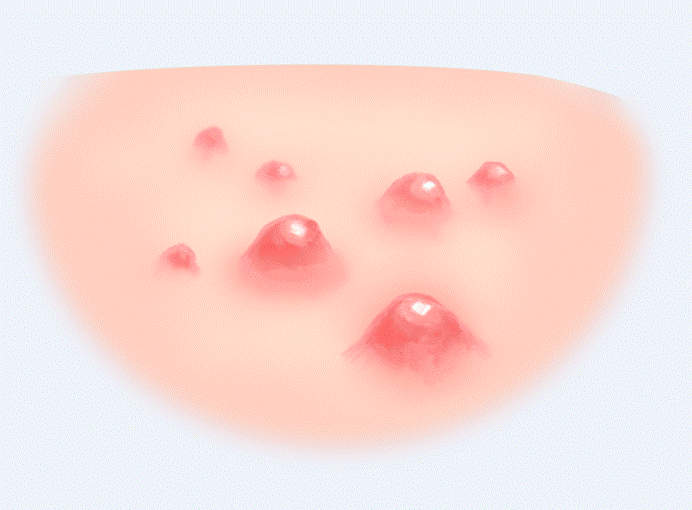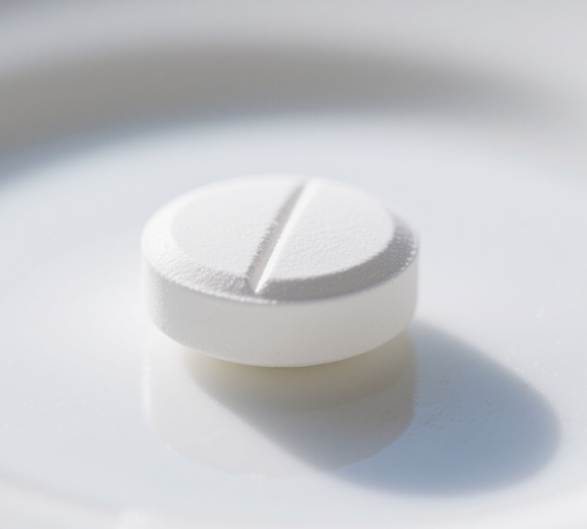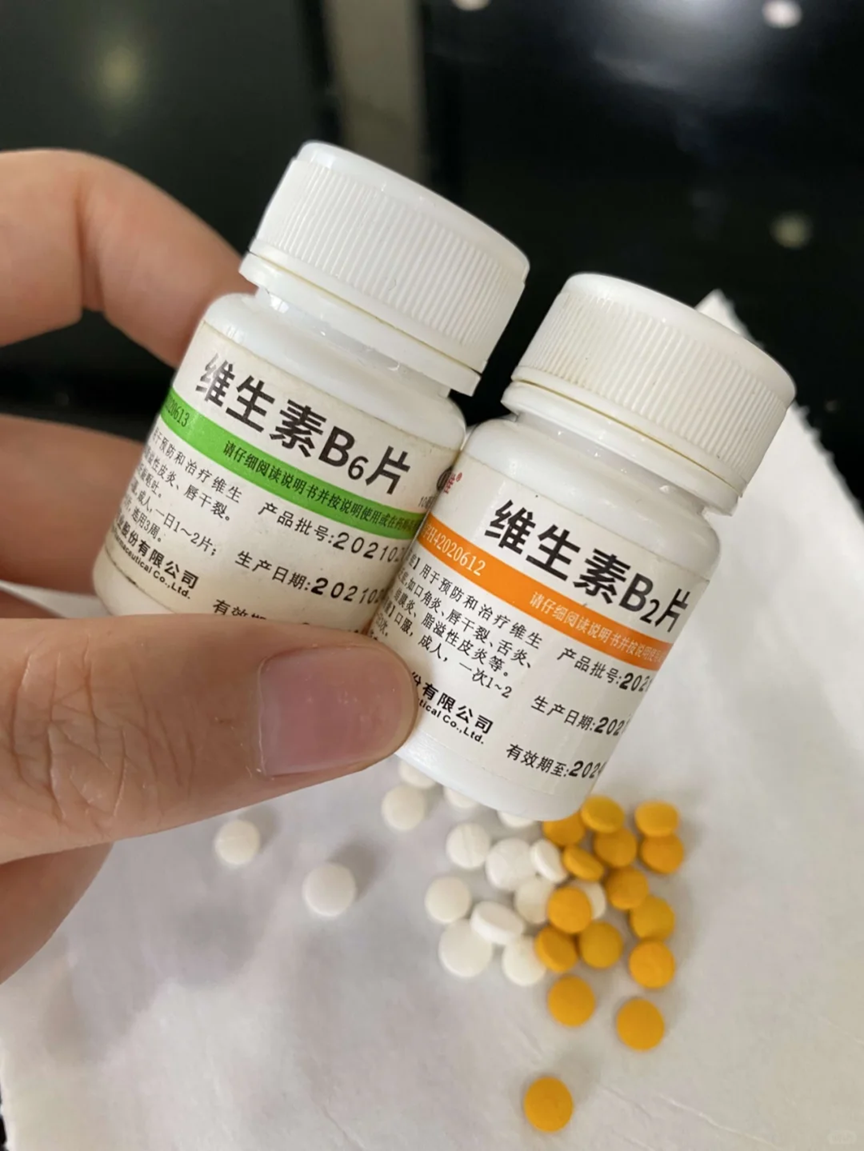A shiny face, the body's vitamins are sending out distress signals!!
09/16/2025 11:48:28
Vitamin B; Facial Seborrheic Dermatitis
Dear acne-fighting friends, have you bought a lot of skincare products only to find that your acne keeps popping up? In fact, for those who are prone to acne, it's important to focus on "reduction" rather than blindly following trends with "addition" in skincare. Simplifying and targeting your skincare routine can help you properly care for your skin and eradicate acne. Today, we introduce a new concept: facial seborrheic dermatitis, along with its solution - vitamin B, to assist everyone in better scientifically caring for their skin.
Seborrheic dermatitis of the face is a chronic, recurrent, inflammatory skin disease that commonly occurs in areas with seborrhea on the head and face. Its peak incidence period is from 2 weeks to 12 months old infants, as well as during adolescence and adulthood, such as acne, pimples, rosacea, etc., which seriously affect patients' appearance. Many patients are not aware of seborrheic dermatitis and do not understand how to care for themselves in daily life, nor do they proactively seek medical treatment. This leads to many patients' conditions worsening and delaying treatment. So, what exactly is facial seborrheic dermatitis?
The Causes and Inducing Factors
The etiology of facial seborrheic dermatitis is not yet clear, and it is related to Malassezia colonization, increased lipids, impaired skin barrier function, immune responses, etc. Factors such as stress, vitamin B deficiency, diet, and alcoholism can all affect the occurrence and development of facial seborrheic dermatitis to varying degrees.

Vitamin B Complex
Vitamin B complex is a group of water-soluble vitamins that includes eight members (B1, B2, B3, B5, B6, B7, B9, and B12), which play an important role in skin health. They demonstrate significant effects on the prevention and treatment of various skin diseases through multiple mechanisms such as participating in metabolism, antioxidation, and regulating the immune system. This article systematically discusses the application of vitamin B complex in dermatology and its mechanisms of action, combining clinical research and nutritional evidence.

The Association and Therapeutic Effects of B Vitamins with Common Skin Diseases
Vitamin B1 (Thiamine) and Beriberi as well as Dermatitis: Thiamine deficiency can lead to beriberi, characterized by numbness in hands and feet, dry skin, or seborrheic dermatitis. The mechanism is related to disturbances in glycolipid metabolism. Supplementing with B1 can promote energy metabolism, improve nerve function, and may indirectly regulate microcirculation to reduce skin inflammation. Dietary sources include whole grains, legumes, and lean meats.
Vitamin B2 (Riboflavin) and Mucosal and Skin Inflammation: A deficiency in B2 can lead to cracked corners of the mouth, swollen tongue, or seborrheic dermatitis. Clinical studies have shown that B2 improves skin barrier function by promoting mitochondrial energy metabolism and antioxidant effects (such as activating glutathione reductase). Additionally, B2 works synergistically with vitamin B12 in methyl metabolism, reducing homocysteine levels and indirectly decreasing the risk of inflammation. Animal liver, dairy products, and green leafy vegetables are main sources.
Vitamin B3 (Niacin/Nicotinamide) and Acne as well as Photosensitive Skin Diseases: A deficiency in B3 can cause pellagra (skin inflammation after sun exposure), while nicotinamide (an effective form of B3) can reduce inflammation, inhibit bacteria that cause acne, and decrease sebum secretion. Randomized controlled trials have confirmed that topical or oral application of nicotinamide (1.5-2 g daily) is as effective as antibiotics for treating acne, but attention must be paid to dose tolerance when taking it orally. High doses of nicotinamide may cause side effects such as vasodilation (such as facial flushing), so topical preparations (such as 4% nicotinamide gel) are more commonly used for adjunctive treatment of acne. Furthermore, a deficiency in B3 can lead to pellagra (manifested as photosensitive dermatitis), which can be significantly alleviated by supplementation.
Vitamin B6 (Pyridoxine) and Seborrheic Dermatitis as well as Atopic Dermatitis: A deficiency in B6 may cause seborrheic dermatitis and eczema. B6 can regulate the immune system, reduce the release of allergens "histamine," and alleviate the itching and redness of atopic dermatitis. The therapeutic dose is generally 50-100 mg daily, adjusted according to gender and age, and should be used under medical supervision to avoid neurotoxicity caused by excessive intake.
Mechanisms of Action of B Vitamins
Metabolic Regulation: B vitamins act as "assistants," helping the body metabolize carbohydrates, fats, and proteins, maintaining normal skin cell renewal. For example, B2 and B6 can help synthesize collagen, promoting wound healing.
Antioxidant and Anti-inflammatory: B2 can enhance the body's antioxidant capacity (such as activating "glutathione"), while B3 can inhibit inflammatory signals and reduce inflammatory factors in the body.
Immune Regulation: B6 and B12 can adjust the function of immune cells, reduce allergic reactions, and have an adjunctive therapeutic effect on eczema and atopic dermatitis.
Treatment and Care for Facial Seborrheic Dermatitis
For patients with facial seborrheic dermatitis, low-dose corticosteroids or non-steroidal anti-inflammatory drugs can be selected. At the same time, traditional Chinese medicine shampoos, selenium disulfide washes, and barrier repair preparations such as hyaluronic acid gels can be used in combination for treatment. For male patients with facial seborrheic dermatitis who have a beard, we also recommend washing their face hair daily until relief is achieved. In addition, a light diet should be maintained, avoiding spicy and irritating foods, drinking less alcohol, and consuming fewer carbonated beverages.
!!!Here's a reminder to everyone: Vitamins are divided into fat-soluble and water-soluble types, with B vitamins being water-soluble. Although they can be metabolized, it is still recommended to take them for a week and then stop for a week. B2 and B6 are suitable for oily skin prone to acne; if you don't have acne yourself, there's no need to take them. B2 and B6 can already reduce oiliness, so over-skincare after taking them may not be beneficial. For daily acne-prone skin, just add an moisturizer followed by a repair essence. The principle is the same with taking a multivitamin supplement, but generally, they are more expensive. My feeling is that it's okay, but unnecessary. In addition to taking vitamins, good sleep habits and dietary control are also important for improving acne! It is recommended that everyone consult with a doctor's advice and be rational when following trends!





